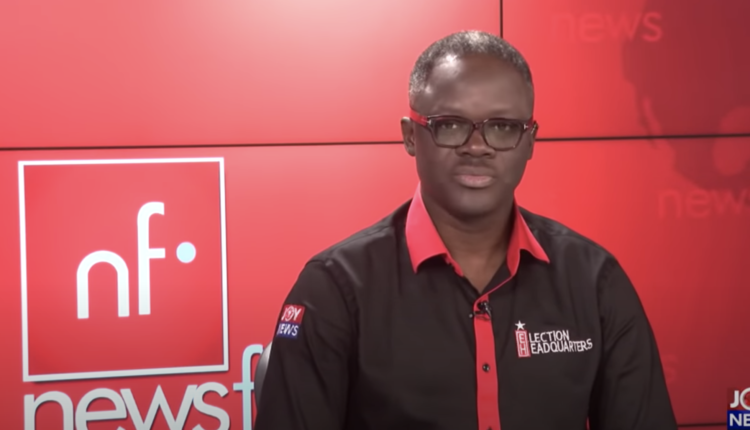“My Lady, … I want to make it clear here that the Attorney-General has on several occasions had meetings with me privately at odd hours, both in person and on phone in respect of this case to cooperate or answer questions in a manner that will make his case better against A1 [Dr. Cassiel Ato Forson] and I have refused. I have evidence to that. So if he is accusing here that I am here to defend A1, he has brought hostilities my doorstep… if he continues on this angle, I will open the Pandora’s box and we will all know exactly what transpired.”
This outburst was recorded in court on Thursday, 23rd May 2024 in the ongoing trial involving former Deputy Finance Minister (now Minority Leader in Parliament) and two others accused of causing financial loss to the State over the purchase of 30 ambulances in 2012. The office of Attorney-General, in a statement, categorically denies the claims, and assures that it “remains focused on a zealous prosecution of the case”.
The statement signed by Deputy Attorney-General, Alfred Tuah-Yeboah, references correspondences by lawyers for the accuser, Richard Jakpa who is the third accused in the case for a plea bargain. It insists the allegations are “part of a grand scheme by the NDC to put more pressure on him [the AG] to discontinue the prosecution or to divert attention from the real issues regarding the actions of the accused persons which have caused enormous financial loss to the State.”
The allegations, forming part of the testimony of the third accused, are very serious, and in a country where leaders are serious about building systems of integrity, they will be thoroughly investigated. They are serious because they border on crime and professional misconduct that could cause the AG to lose his license to practice law permanently.
Section 213 of the Criminal and Other Offenses Act, 1960 (ACT 29) makes it a felony to fabricate evidence to obstruct or pervert justice. Rules 13, 40 and 54 of the Legal Profession (Professional Conduct and Etiquette) Rules 2020 (L.I 2423) variously prohibit a lawyer from advising or suggesting to a witness to give false evidence. They prohibit prosecutors from any such conduct as alleged, and from communication with a represented person without consent of his lawyer.
The nature of the sanctions for such conduct, tells the seriousness especially if proven against an Article 88 officer. Our AG is not only the principal legal adviser to the Government, but he or she combines the office of the Minister for Justice, is a leader of the Bar, and plays very critical roles on sensitive boards and committees, as well as represents the country internationally by virtue of the offices.
I suppose the State, in this prosecution, is hoping not only to seek conviction for the deterrence jail terms bring, but to recover the 2.4 million euros said to have been lost (stolen) in the bizarre deal former Health Minister Kwaku Agyemang Manu described as mere “sprinter buses fitted with kitchen panels” in 2017 while announcing a probe by the EOCO.
The promise to and expectation of Ghanaian taxpayers is not one of those corruption trials that yield nothing. If Mr. Jakpa is lying on oath, he must suffer the consequences, including for perjury. The crime of perjury, also a felony (second degree attracting up to ten years imprisonment) is in section 211 of Act 29. That’s just before 213.
Elsewhere, his allegations could result in a procedure for a mistrial and the prospects of recovering the money lost. Yes, the case is botched regardless it could be won on its merits. Misconduct by the prosecution that impacts the fairness of the trial results in a mistrial.
Let those who must do what it takes to safeguard personal integrity, professional conduct, and above all the office of the AG and criminal justice in Ghana not let this matter slide.
However, the demand by some commentators on the judge is unfounded. When testifying as a witness, it is not the province of a judge to demand material proof to a testimony of a witness. It is the job of the accused to offer material that sustains the claim in his favour or the one cross-examining or the party affected to discredit or disprove the adverse testimony including by making the demand being made because the standard here is proof beyond reasonable doubt and a scintilla of doubt in prosecution’s case inures to the benefit of the accused.
A judge’s role here arises when the trial is over and the judge is examining the testimony and documents to make findings of fact and give judgment.
We are not a Civil Law country where judges participate in the trial directly. We are a Common Law country where judges do not descend into the arena of conflict.
And that is My Take.
Writer: Samson Lardy ANYENINI


Comments are closed.